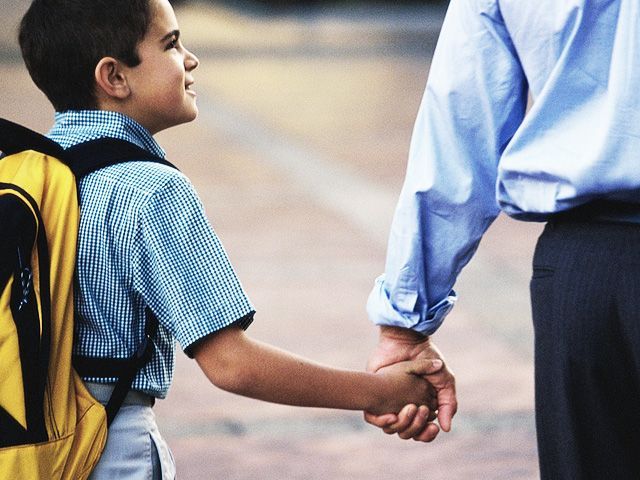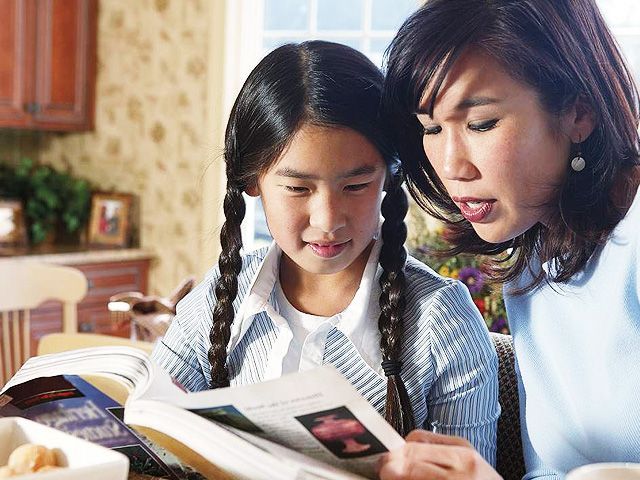 The consulting psychologist supervisor, Ms. Lee Li Li, shares about the topic “Can my children be on their own” at 7:30p.m. at SJK (C ) Kheng Chee Event Hall on 29th April 2017 (Saturday).
The consulting psychologist supervisor, Ms. Lee Li Li, shares about the topic “Can my children be on their own” at 7:30p.m. at SJK (C ) Kheng Chee Event Hall on 29th April 2017 (Saturday).The 10 steps to be initiative

1. Support and encouragement
- When children reject or procrastinate in doing house chore, the reaction that display by majority of the parents are from gentle tone then escalate to anger and furious, sometimes the anger may even develop into implying punishment and threaten the children in order to complete the tasks.
- Regardless of whether children comply with instruction or not, parents should always replace condemnation with giving encouragement and support continuously in order to let the children know that they can actually do better. Parents may lead and coach their children by doing the tasks together.
- When children put in effort to do tasks, parents should emphasize on the concept of “means justify the end”. Regardless of the outcome, parents should always feel appreciate and be thankful for the effort that the children put in to do the task.
2. Be a role model. Lead by example.
- Parents and children should do activities together and lead by example during activities. Parents can always be with children and interact with children during the activities which actually help the children feel the warmth and affection from their parents.

3. Read and learn together with children
- Parents and children may read a book or study an issue or observe an object together with a sharing session
- Parents are encourage to bring children for nature vacation more often. The reason being is children will learn how to help and support each other when they are overcoming the obstacles of nature together with their parents.
- It is unnecessary for parents to always pretend to be brave and tough when being with children. In fact, parents showing own weaknesses in front of children sometimes can cultivate children to take initiative in helping others when seeing others feeling tired or when anyone need any help.

4. Teaching children about their responsibilities
- The differences between Parent education and child responsibilities:
- Parent education (亲职教育): Parents learn how to be a competent parents
- Child responsibilities (子职教育): Guide the children how to do what they are deemed to do. - Parents should cultivate children about how to take care others and family. This also helps in teaching children about how to be a good parents in the future.
- Apart from that, parents should learn to let go by letting their children to take responsibilities, rather than deprive the opportunity for children to be independent and initiative.

5. Positive thinking
- Learning initiatively encompasses sincerity and the feeling of deeply touched.
- In the process of children putting in effort to perform a task, parents should emphasize on the effort that the child put in and give in sincere appreciation to the children rather than encouraging and rewarding the children blindly on their effort in completing a task.

6. Do not compare.
- When parents are to compare children with others, children with excellent result will either portray arrogant or resist from being compared. Whereas the children with lower grade may feel upset.
- Parents who do comparison between children with others frequently can affect children’s character to develop in a negative way
- Children’s conscience can be affected slowly when children are being cultivated that it is alright to free themselves sometimes when making mistakes occasionally since they were young. They will learn to take initiative to only do things that benefit him or her gradually rather than doing things that benefits the society or others.
7. Standardize parenting style with the elderly
- Parents should standardize the parenting style with all the family members at home, otherwise the different parenting styles use on children can create confusion in children’s value development.
8. Self-care vs independent
- Parents should learn to let go and give chances for children to learn to be independent and initiative.

9. Mutual respect
- Regardless the feeling is good or bad, parents should learn to respect children’s feeling and emotion.
- If children are feeling happy when they actually have make a mistake, parent should respect the children’s feeling at that moment, rather than condemn the children’s wrongdoing immediately when they share about their happiness with us. Parents can discuss and explain the children’s behavior after the children have calmed down themselves which discussion done at this moment is able to help the children to reflect about their behavior clearer and better.
- Due to the cognitive skill of children is low, if they were being coerced to apologize for their wrongdoing, the only thing that they learn is apologize promptly yet, they never understand the reason of the apology and what mistake that they have made. The apology may not be genuine. Thus, child will practice mutual respect initiatively.

10. Complete tasks or house chores together.
- At this stage, parents no need to make any special arrangement for children to practice how to take initiative. The reason being, the values that being instilled to children have reached the level of oneness with their parents, which all the family members are capable to perform task willingly and sincerely.
The differences between educating and upbringing a child:

1. Educate a child
- To educate child in learning, doing revision and method to study
- When parents want to know children’s study progress, parents should highlight on the method of study. For example, what kind of method that children used to complete homework or study, instead of asking whether children have completed homework.
2. Upbringing a child
- To guide the children about socialization, interpersonal relationship and the right attitude to develop positive character.
- Parents may ask their children about how their children are doing in school, how’s their interaction with friends in school.

Haim G. Ginott, the psychologist:
- If children live with praise, they learn appreciation.
- If children live with security, they learn to have faith in themselves and in those about them.
- If children live with encouragement, they learn confidence.
- If children live with tolerance, they learn patience.
- If children live with criticism, they learn to condemn.
- If children live with ridicule, they learn to feel shy.
- If children live with acceptance, they learn to love.
Note: The above content was received from sharing session at SJK ( C) Kheng Chee, titled “Can my children be on their own” on 29th April 2017 (Saturday). For more details, please contact our administration office. We will have our psychologist to advice you further. Thank you.





